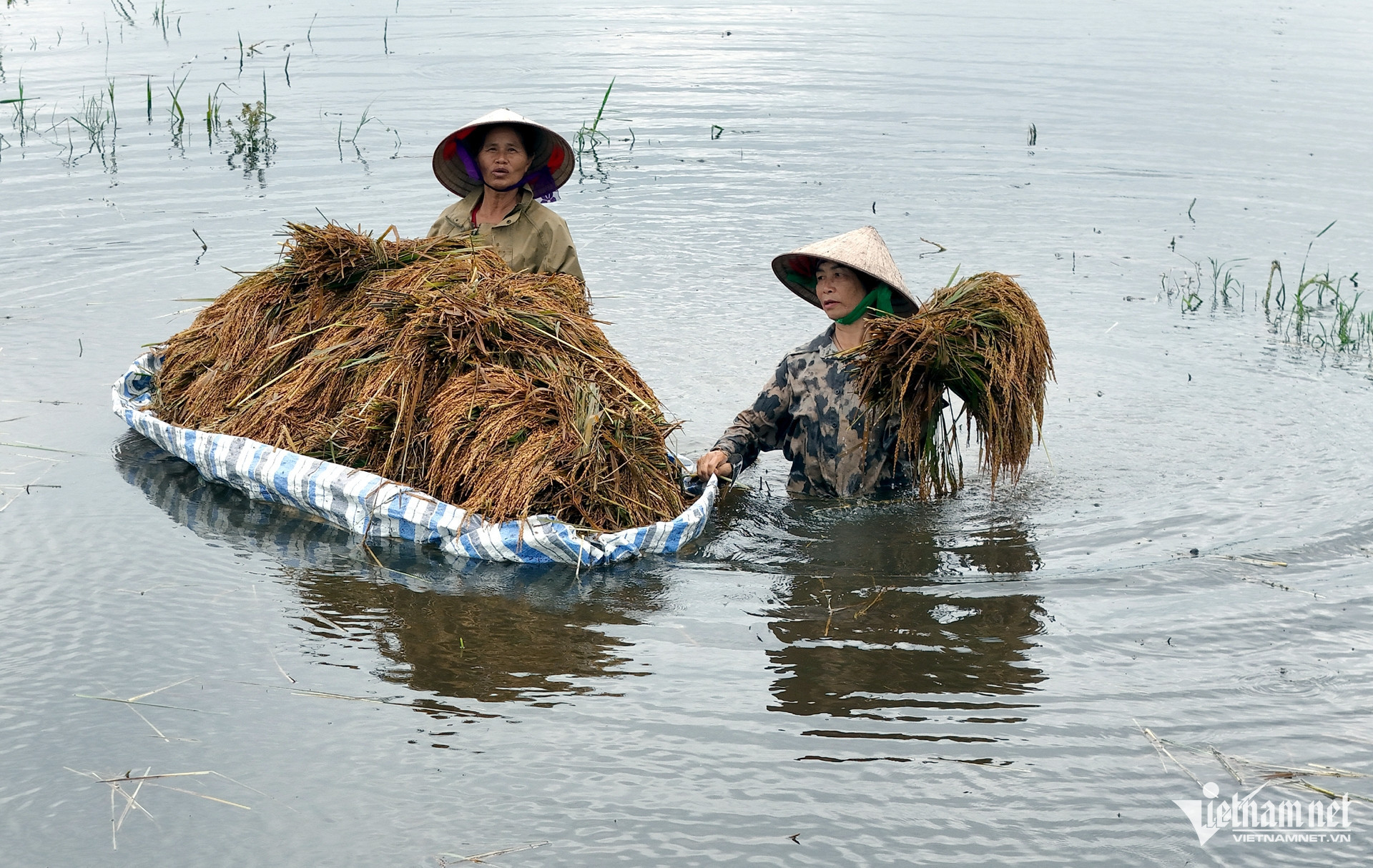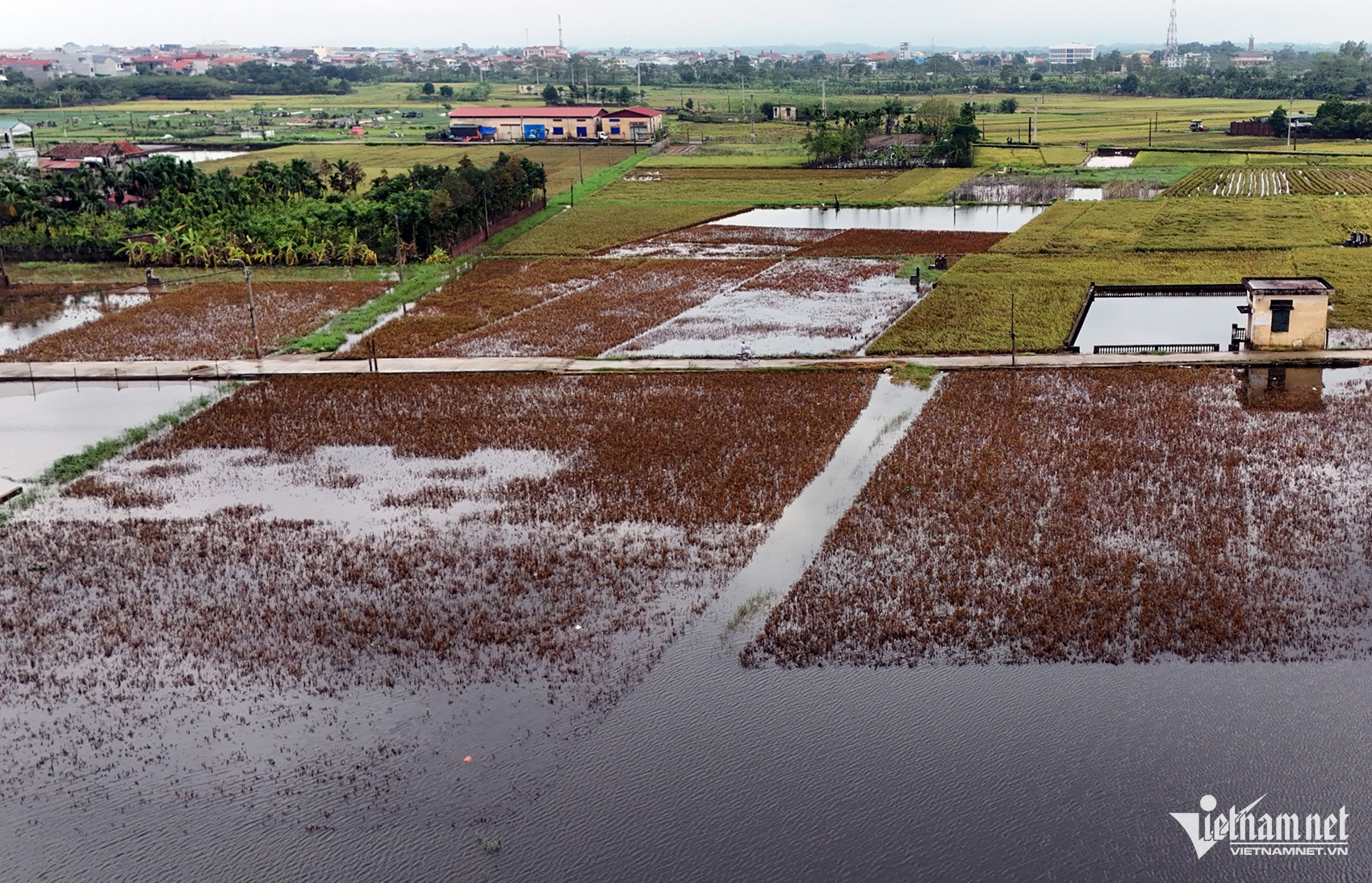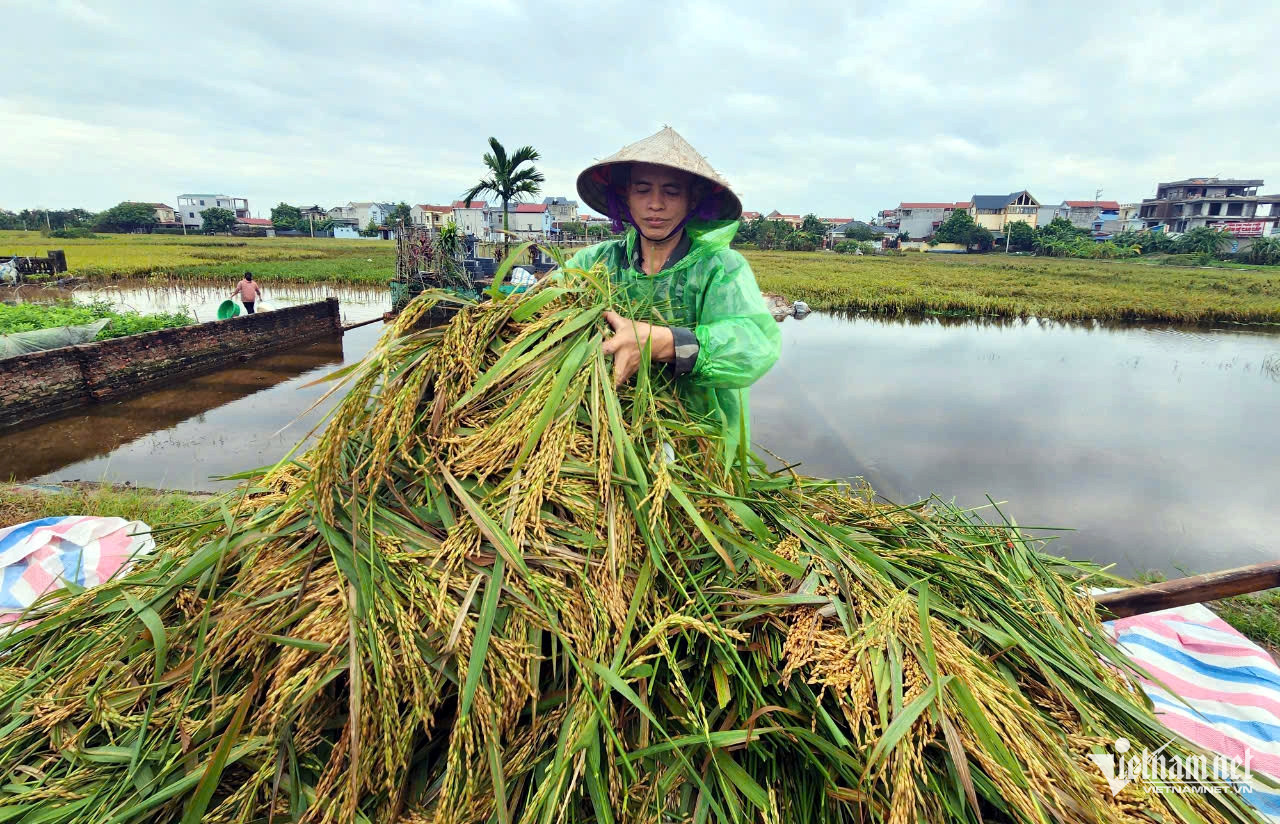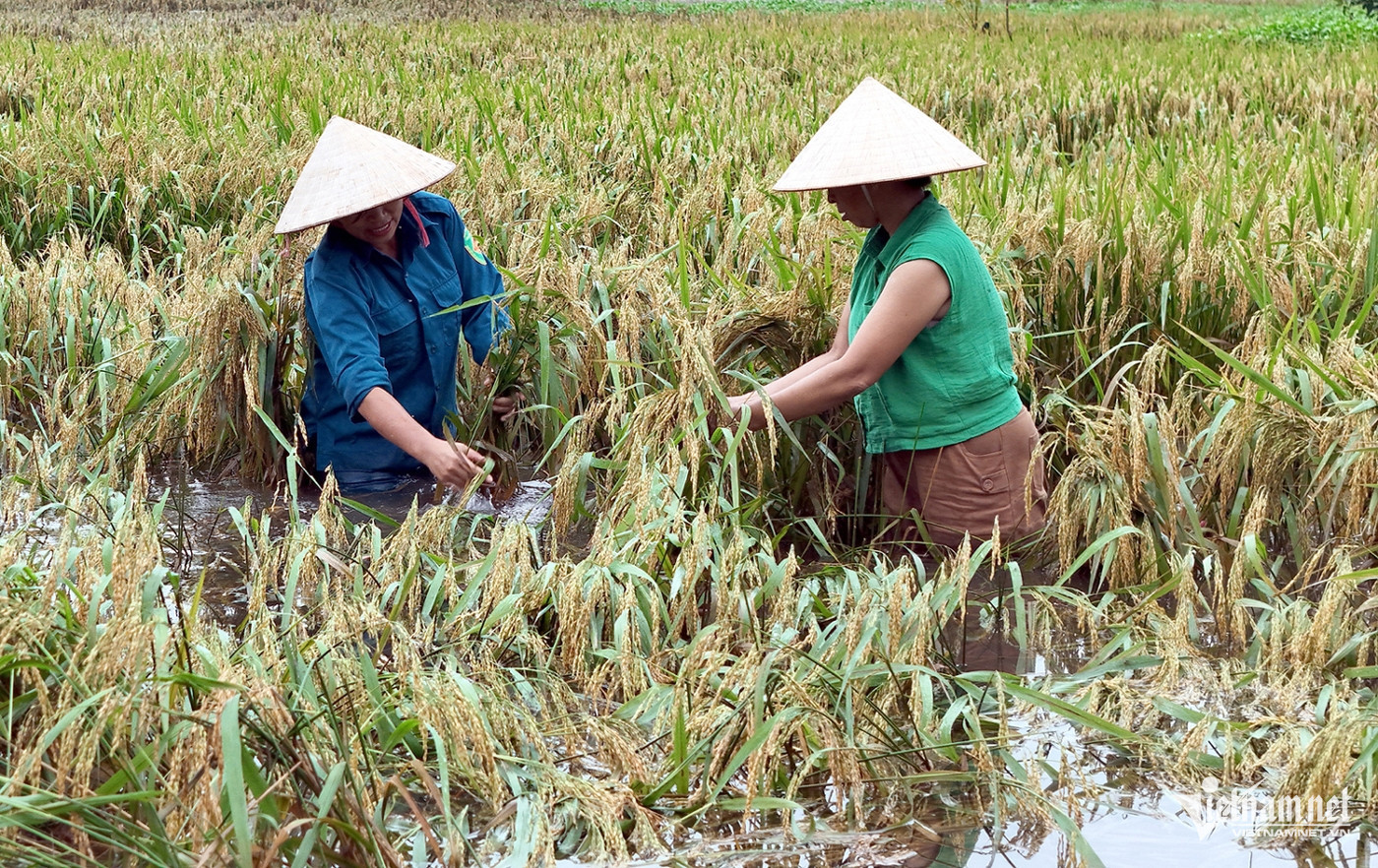The damage, affecting over 57,300 hectares and costing approximately 1.445 trillion VND, poses severe economic challenges to local farmers who now face the task of salvaging whatever remains of their inundated fields.
In the districts most affected, such as Chuong My, Soc Son, and Ba Vi, the community is rallying to recover from one of the most damaging typhoons in recent history, illustrating the profound impact of extreme weather events on agricultural sustainability and food security.

According to the Hanoi People's Committee, over 57,300 hectares of rice and other crops have been affected by Typhoon Yagi, resulting in damages estimated at 1.445 trillion VND.
Of the affected areas, more than 38,700 hectares of rice fields have suffered, including 15,200 hectares of deeply submerged fields and nearly 23,500 hectares of flattened crops. Hanoi estimates a loss of over 111,000 tons of rice, valued at approximately 594 billion VND.
Regarding other crops, over 10,700 hectares in the districts of Hanoi have been impacted by Typhoon Yagi, with damages approximating 890 billion VND. Specifically, nearly 5,000 hectares of vegetables were affected, leading to a loss of about 42,700 tons, valued at roughly 726 billion VND.
Districts such as Chuong My, Soc Son, and Ba Vi have been among the most severely damaged in terms of rice and crops. Chuong My alone reported 3,616 hectares of flooded or flattened rice fields, Soc Son nearly 8,000 hectares, and Ba Vi close to 1,800 hectares.
To date, numerous rice fields in Hanoi are still underwater. In some areas where the water has receded, the rice has started to sprout. Hundreds of hectares owned by residents of An Lac and Hoa Binh villages in Trung Gia commune, Soc Son district, have turned into 'dead fields' once the water withdrew.

Nguyen Van Toan from An Lac village reported that his five sao of rice were completely destroyed by the floodwaters.
"The flood was so high that nothing could be saved. Not only the rice fields, but all my possessions including the TV, refrigerator, and two electric bicycles were damaged by the water," shared Mr. Toan.
As the floodwaters receded, Nguyen Thi Thuy from An Lac went to her fields to clean up her farm. "During the recent flood, my family managed to save some poultry by moving them inside the house, but nearly a ton of fish and plants outside were lost," Ms. Thuy stated.
Thousands of agricultural households in Ba Vi district also suffered significant damages from Typhoon Yagi. Chu Thi Thao from Dong Bang village in Dong Thai commune, Ba Vi, mentioned that her more than one sao of rice has been submerged for half a month. Despite being in the hospital, Ms. Thao requested discharge to salvage the rice for her livestock.

Nguyen Van Mao’s family in Phu My village, Tay Dang town, Ba Vi, planted 1,440sq.m of rice, but due to the storm, about 70% was damaged. Despite some of the rice still being green, his family went to the fields to gather what they could.
Mr. Mao expressed hope that Ba Vi district and Hanoi city would implement policies to support residents who suffered losses in rice, crops, and livestock due to the storm. He also hopes that the authorities will continue the policy of supporting 50% of the cost of rice seeds to alleviate the burden on farmers.
Nguyen Hong Anh, director of Tay Dang Cooperative in Ba Vi, noted that although the cooperative received support for 50% of disease-resistant rice varieties, the prolonged submersion of the fields led to significant crop damage.

Regarding the aftermath management, Le Hong Son, Vice Chairman of the Hanoi People's Committee, stated that the city has directed relevant units to assess the extent of agricultural damage and proactively allocate funds to support affected residents.
In cases exceeding the budgetary capabilities of the district, timely reports to the city are required for additional funding.
Hanoi has also requested units to propose specific support plans to address the consequences of the storm, restore production, compensate for crop and livestock damages, help farmers minimize losses caused by Typhoon Yagi, and stabilize post-storm life quickly.
Quang Phong